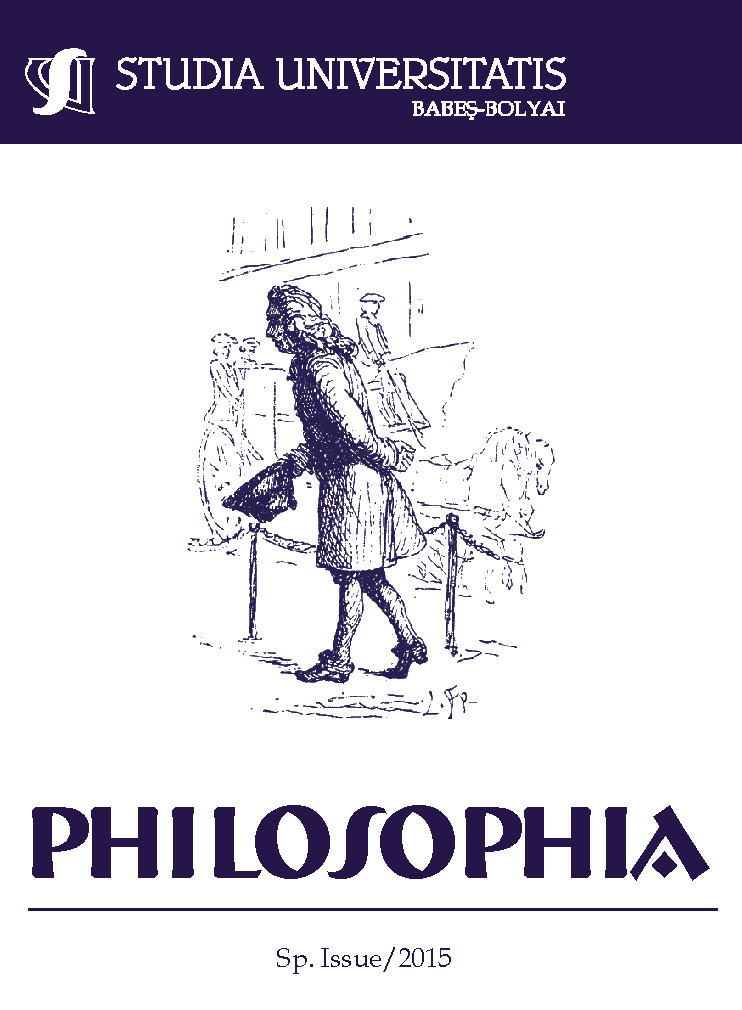THE ROLE OF ALTERITY AND OF THE DIGITAL MEDIA IN OUTLINING OF THE POSTMODERN INDIVIDUAL’S IDENTITY
Keywords:
community of comparing finitude, identity, alterity, media culture, alienationAbstract
The Role of Alterity and of the Digital Media in Outlining of the Postmodern Individual’s Identity. The postmodern individual forms his identity, his self-image and self-perception not only through self-reflection or through reference to his own convictions, his own system of values and principles. The construction of the self-image is dependent upon social recognition and on the messages transmitted from the other, during the interaction between them. The relevance of the other for the process of defining one’s self-identity leads ultimately to dependence on mass-media, which offers to “gratuitously” help the individual in obtaining the social recognition that he aspires to, by constituting and reinventing himself in such a manner as to distinguish himself through superiority from the masses. Such dependence on mass-media leads to the alienation of the individual from his self, to his forming a subservient relationship towards trendy cultural models, opinion leaders or group opinions, dispensing with the individual’s autonomy and capacity of critical reflection on the information he is presented with.
References
Adorno, T W., The Culture industry: Selected essays on mass culture. Routledge USA, 2001, pp. 61‒98.
Baudrillard, Jean, Societatea de consum. Mituri și structuri, Comunicare.ro, 2008.
Bertrand, Claude-Jean, Deontologia mijloacelor de comunicare, Institutul European, 2000.
Bertrand, Claude-Jean, Introducere în presa scrisă și vorbită, Polirom, 2001, pp. 17‒21; 31‒45; 215‒233.
Breton, David, Antropologia corpului și modernitatea, Cartier, 2009.
Codoban, Aurel-Teodor, Imperiul comunicării. Corp, Imagine, Relaționare, Idea, 2001.
Codoban, A. T., “Manipulare, seducție și ideologie ostensivă”, in Journal of the Study of Religions and Ideologies, no. 4/2003, pp. 122‒138.
Connor, Steven, Cultura postmodernă. O introducere în teoriiile contemporane, Meridiane, 1999, pp. 63‒85.
Hermans, Hubert, “Voicing the Self: From Information Processing to Dialogical Interchange”, in Psychological Bulletin, vol. 119, no.1/1996, pp. 31‒50.
Horkheimer, M., Adorno, T. W, Dialectica luminilor, Polirom, 2012.
Hugli, A., Lubcke, P., Filosofia secolului XX, All Educational, 2003, volumul 1, pp. 275‒367.
Internet Encyclopedia of Philosophy. Accesată la adresa: http://www.iep.utm.edu/
Kellner, Douglas, Cultura media, Institutul European, 2001.
Lipovetski, Gilles, Fericirea paradoxală. Eseu asupra societății de hiperconsum, Polirom, 2007.
Lochard, G., Boyer, H., Comunicarea mediatică, Institutul European, 1998.
McLuhan, Eric, Marshall McLuhan. Texte esențiale, Nemira, 2006.
McQuail, D., Mass Communication Theory. An Introduction. Sage Publication, 1983.
Mead, G. H, Mind, Self and Society from the Standpoint of a Social Behaviourist, University of Chicago, 1934.
Nancy, Jean-Luc, Comunitatea absentă, Idea Design and Print, 2005.
Vattimo, Gianni, Societatea transparentă, Pontica, 1995, pp. 5‒34.
Downloads
Published
How to Cite
Issue
Section
License
Copyright (c) 2015 Studia Universitatis Babeș-Bolyai Philosophia

This work is licensed under a Creative Commons Attribution-NonCommercial-NoDerivatives 4.0 International License.





